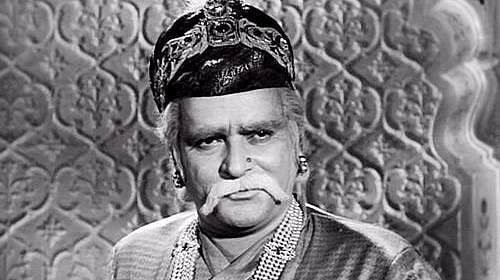Born on 3 November 1906 in present-day Pakistan, Prithviraj Kapoor was an ardent actor who nurtured a deep love for theatre throughout his life.
New Delhi: If Bollywood were a kingdom, the Kapoors would be its monarchs. And if one were to trace the fountainhead of this cinematic legacy, all the branches of the tree would converge on one name: Prithviraj Kapoor.
The celebrated thespian entered films when cinema was yet to establish its foothold in the Indian imagination, but is best remembered for the poignant plays he staged with his eponymous travelling theatre.
Kapoor, who was born on 3 November 1906 and died 29 May 1971, remains one of the shining lights of Indian entertainment, having left behind an ouvre of films and plays that continue to regale audiences nearly half a century after his death.
Also read: I always had a soft spot for Shashi Kapoor, I remember his eyelashes: Sharmila Tagore
Early life
Kapoor was born to a policeman’s family in Lyallpur, also known as Faisalabad, in present-day Pakistan.
He began studying law, but cut that short to become an actor. He moved to Mumbai, then Bombay, in 1928 with a small loan from his aunt.
His debut followed two years later with the silent film Cinema Girl (1930), opposite Ermeline. He also starred in India’s first talkie, Alam Ara (1931), besides numerous other films like Debaki Bose’s classic Vidyapati (1937) and son Raj Kapoor’s Awara (1951).
Awara, in fact, also featured a cameo by Kapoor’s father in his lone cinematic appearance ever.
However, the role that immortalised Kapoor was that of Akbar, the raging father to lovelorn Salim, in K. Asif’s iconic Mughal-e-Azam (1960).
Prithvi Theatre
A giant of the motion picture alright, but Kapoor, always an ardent actor at heart, carried a deep love for theatre throughout his life.
At the age of 38, having developed a strong financial standing, he set up Prithvi Theatre, a travelling troupe that went across the country with plays that tapped issues of the day for inspiration.
The first play staged by Prithvi Theatre was Shakuntala in 1944. Between 1945 and 1956, he directed seven original plays. Two years before Partition ripped the country apart, Kapoor foretold its horrors in a stirring play called Deewar (1945).
“My father’s basic request or dictum to the writers was to write plays that dealt with contemporary problems,” his son Shashi Kapoor, the late star who nurtured the troupe after his father’s death, said in an interview to Rediff in 2003. “Partition was about to happen and he wanted the anxieties of the people to be dealt with in their plays.”
Deewar ran to full houses, evoking an emotional response from the audience. The play will return to stage for this year’s edition of the Prithvi Theatre Festival, a testament to its cross-generational appeal.
Two months before Partition, when the animosity between Hindus and Muslims was peaking, he dared to plead for religious harmony in his play Pathan, returning to the theme in two subsequent plays as well, Gaddaar and Aahuti.
Aahuti, Kapoor’s last play on the subject, was the first in Indian theatre to touch on women’s rights, narrating the bloody chapter from a female perspective and highlighting the rape and sexual harassment that took place during the Partition.
The play was reportedly so evocative that it would often cause the refugees in the audience to burst into tears.
Also read: Cutesy for Sanju to hurl ‘ma-behen ki’ at journalists. But it can’t rewrite evil 1993 plot
The four plays, commonly referred to as the ‘Partition Quartet’, are said to have influenced subsequent films on Partition such as Ritwik Ghatak’s Meghe Dhaka Tara, Komal Gandhar and Subarnarekha.
By 1960, the theatre group stopped making money, with more and more audiences turning towards films, and Kapoor gradually stopped acting in theatre and film.
Kapoor was posthumously awarded the Dadasaheb Phalke award, Indian cinema’s tallest recognition, in 1972.
